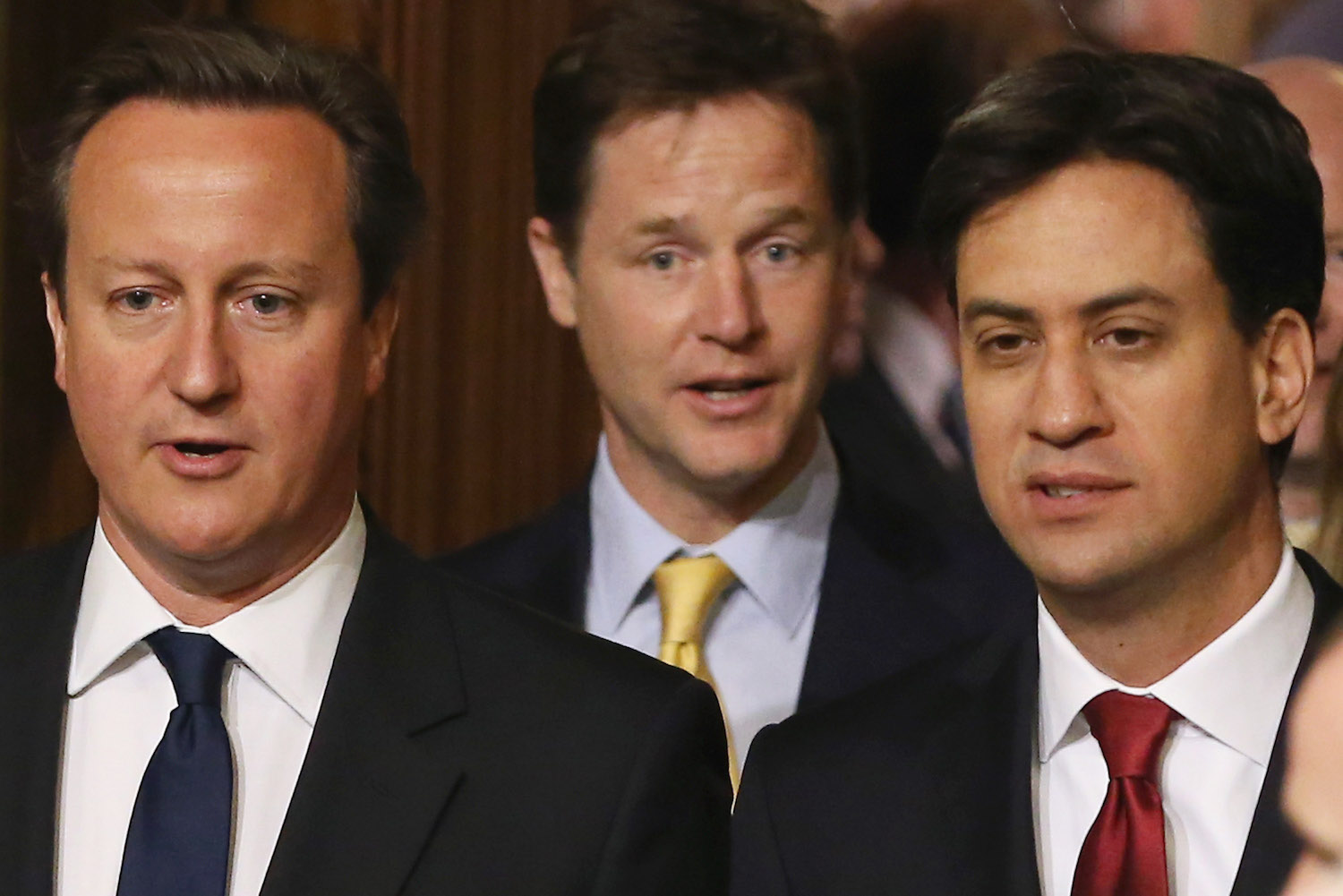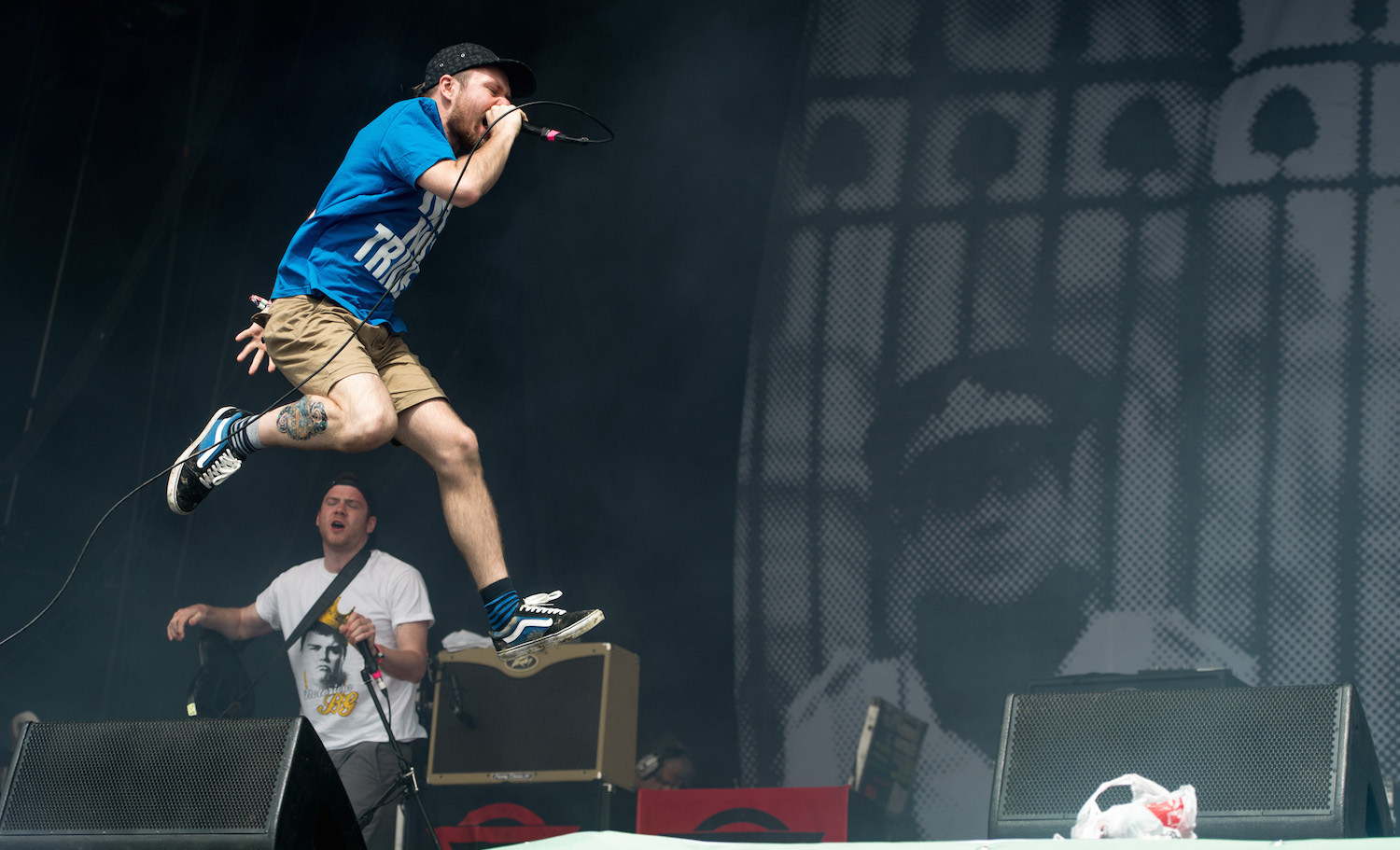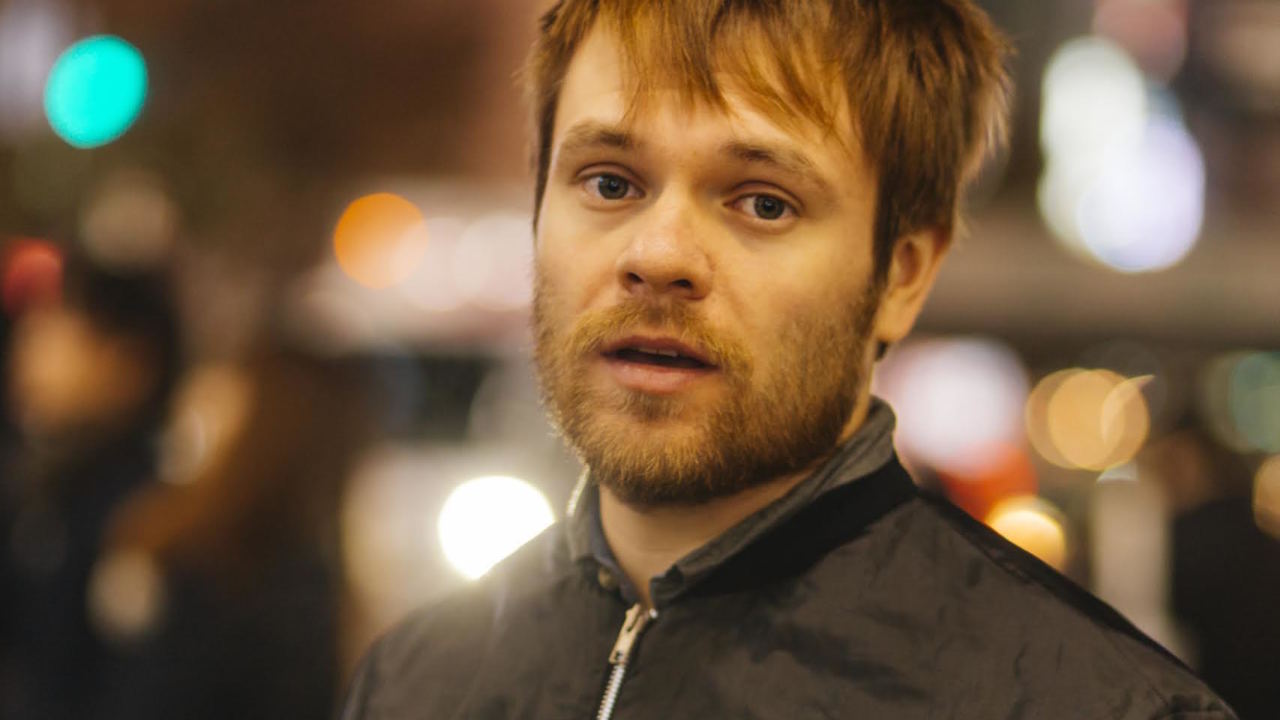There’s certain things you shouldn’t discuss at dinner parties. You know, stuff like politics, religion and why you kick drinks out of people’s hands. Enter Shikari frontman Rou Reynolds didn’t get the memo, and luckily for us, this isn’t a dinner party. This is TeamRock.com. Take it away, Roughton…
Politics “Personally, I don’t believe in politics whatsoever. It’s outgrown its use, it’s irrelevant now. Politicians don’t do anything anymore – they don’t know how to solve poverty, world hunger and climate change. It’s the people at the height of science and technology that should be directing humanity. So the word politics is almost the same as the word conspiracy – they have no meaning anymore because they’re so detrimental. Also, the word turns people off.
“People switch off from the word political because they’re so disconnected from everything. Everyone has their own lives. It’s another fault of capitalism: people don’t get time to think about the bigger picture. Often the bigger picture is something quite horrible to think about too, so people switch off and avoid it. I want to step outside the bullshit and try to evaluate things objectively.

Religion “One of the main problems in society is that we’ve used religion as a moral compass. Religion is based on scripture, which is unchanging – but everything else is progressing: medicine, technology, health and even morality itself. So everything else is moving forward and we’re constantly realising that things we thought to be true in the past are wrong. So it’s time we started thinking scientifically about what benefits humanity. Currently, capitalism and other monetary systems are preventing us from evolving that way.
“We’re always trying to step back and think about things objectively and scientifically. When you do that, you start thinking more spiritually and with a lot more love. In some ways, that’s what religion preaches too - and it’s hard to argue against the main mantra of treating others how you’d wish to be treated – but it gets distorted with scripture. Effectively gods are a simply another form of tyranny, it’s just that they’re not physical.
“A lot of scriptures were written so long ago, and they were written by people who were racist, fascist and disgraceful in many ways. One of them is written about a god who created a massive flood which wiped out the population of the earth – this guy’s a psychopath!”
**Environment **“Democracies are often just polite dictatorships really. Those in power aren’t doing anything for the people – governments don’t work for the people. If you analyse every inch of what society’s doing and where it’s going, then it’s clear it’s heading to a massive collapse. There are very few fossil fuels and hydro-carbons to be used. The song Arguing With Thermometers is about how we’re all going to be going into the Arctic soon so we can squeeze the last of that remaining oil on earth. So at some point, there’s going to be massive collapse and perhaps then we’ll realise that we do have to change the whole of our energy infrastructure. The whole system needs to change.”
Songwriting “If everything was fine, if society was a lot better, I’d be lost – I’d have to approach music in a whole different way. I can’t write about anything else. I can’t write songs about girls or things like that. And I’ve tried, I’ve definitely tried. When I try to write more personal songs, even though it might be about something that means a lot to me, I just can’t feel it in a song. I can’t be honest with it.
“Because I’m writing the bulk of the music, I do feel the bulk of the responsibility in the band. I mean, if the music’s not there, we’re just four guys running about like nutters on a stage – anyone can do that! It’s not pressure I feel but responsibility. I think that’s why I’m really interested in every aspect of the band. The music becomes something bigger when it’s released and I want every side to represent the original idea I had in my bedroom. I don’t want it to become something else, or get attached to a Colgate advert or something. I’m quite protective about it.”
Himself “I’m not a violent person, I don’t have much of a temper. I think I’ve changed a lot over the years. When touring really picked up over the last few years, I really learned a lot. I wasn’t this mad, angry person beforehand but I’ve learned to contemplate things more now and stand back. I suppose it’s just growing up, really. It’s other things too like realising that when you split up with a girl it’s not the end of the world. There are a lot of other stages you go through too. The more you learn, the easier everything becomes while, at the same time, life gets harder.
“There is so much stress involved when you’re younger: there are mad highs and mad lows, everything’s fantastic or it’s the end of the world. I definitely had those insecurities when I was 18, and they haven’t completely vanished, but I’ve learned to deal with them. I’d live certain ways and stay in certain relationships because they were comfortable – I knew they weren’t the right thing, but they made me feel comfortable and secure. But you learn and you realise you can move on.
“I think I’m quite immediately trusting of people – which may be a bit naïve, but I’d always rather be on the side of the person being fucked over, than the person who’s fucking people over. Guilt is a much worse feeling to have than being upset that you read someone’s personality wrong.”

Enter Shikari, live at Glastonbury 2013 Photo: Ian Gavan / Getty Images Entertainment
**Performing **“I think the band’s energy probably had its roots from frustration. After we’d been playing for a while after we started, there was talk about us. You’d hear that so and so from a label was going to come to a show, or that a press agency were coming to check us out, or that Zane Lowe was coming. None of them would ever come. You’d look at the guest list at the end of the night and there were no ticks. That went from being repetitive to laughable – we began to think the band were going nowhere. We were taking every gig we could get, and we still think that’s the best way to get started, but we were playing with folk bands, death metal bands, indie bands and never fitting in.
“We went through a phase where we had to make it exciting for ourselves because it was getting as monotonous as filing papers for a living. So, to make it real and visceral for ourselves, occasionally we would go onstage with a mission to make everyone in the venue hate us. It’s not something we’re very proud of now, of course, but we’d be running over tables, kicking people’s drinks over and being as outrageous as possible. Luckily we came out the other side but we took some of those primitive, gut reactions with us. That keeps it real. And I think it’s the same for some of the audience – there aren’t many places you can go where you can jump on people’s heads, so hopefully we’re providing an outlet you don’t get anywhere else unless you play rugby or something.”

